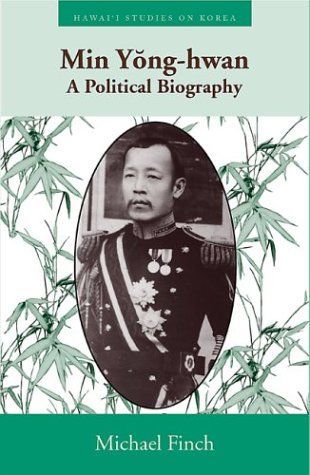
Min Yong-hwan A Political Biography
The closing years of the Choson dynasty have received considerable attention from historians of Korea. Nevertheless, surprisingly few biographical studies have been written on the major Korean political figures of that time. The diplomat and scholar-official Min Yong-hwan (1861-1905), described by one contemporary Western observer as "undoubtably the first Korean after the emperor," is best remembered in Korean historiography for his pioneering diplomacy at the courts of Tsar Nicholas II and Queen Victoria in the late 1890s. Furthermore, as the highest ranking official to commit suicide in protest against the 1905 Japan-Korea protectorate treaty, he is considered to be the foremost patriot of Korea's Taehan era (1897-1910). This pioneering study of Min Yong-hwan is long overdue and provides us with a new perspective on a period of Korean history that still casts its shadow over the region today. Unlike many of his contemporaries, Min Yong-hwan left behind a substantial collection of written works, including political essays and travel diaries. Based on these important documents and other primary source materials from Korea and the West, Michael Finch's study traces Min's life and political development from 1861 to 1905. During this turbulent period of Korea's history, Min moved away from the relatively conservative views of the ruling elite toward a more reformist position that looked to Britain and the United States as role models for Korean modernization. As a close relative of King Kojong and Queen Myongsong, Min played an important role in bridging the gap between the throne and Korean reformers and members of the foreign diplomatic and missionary communities.